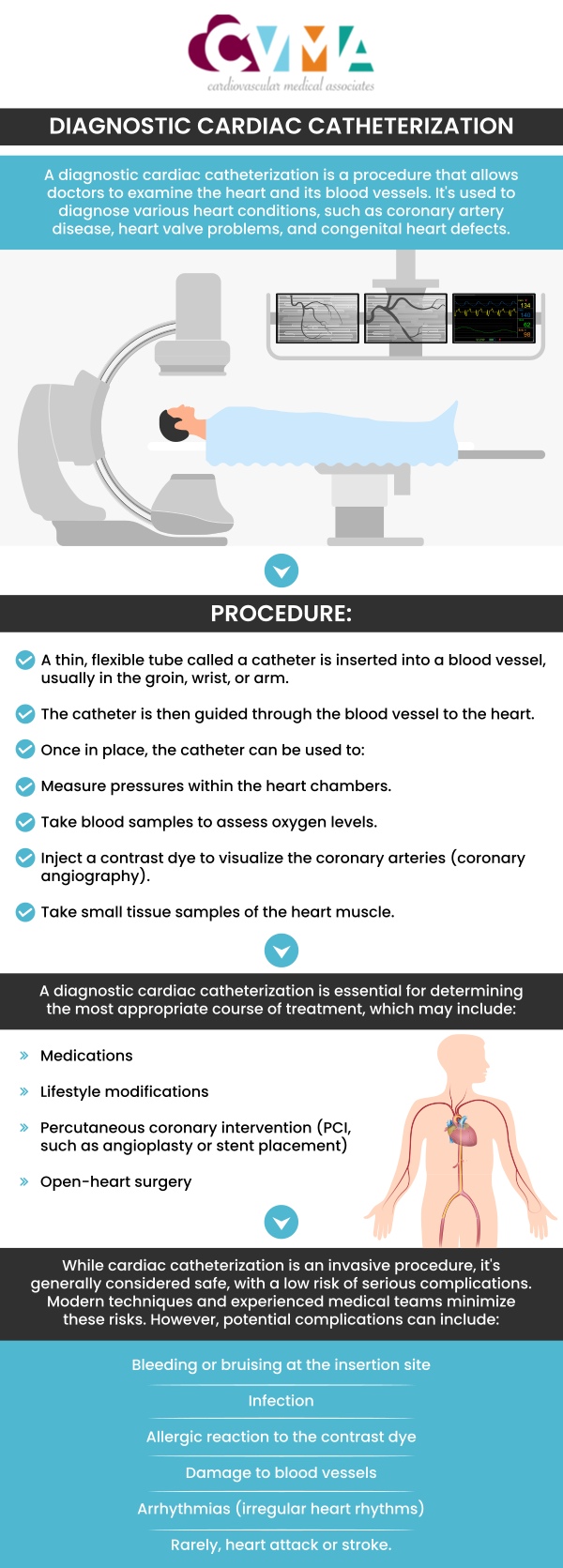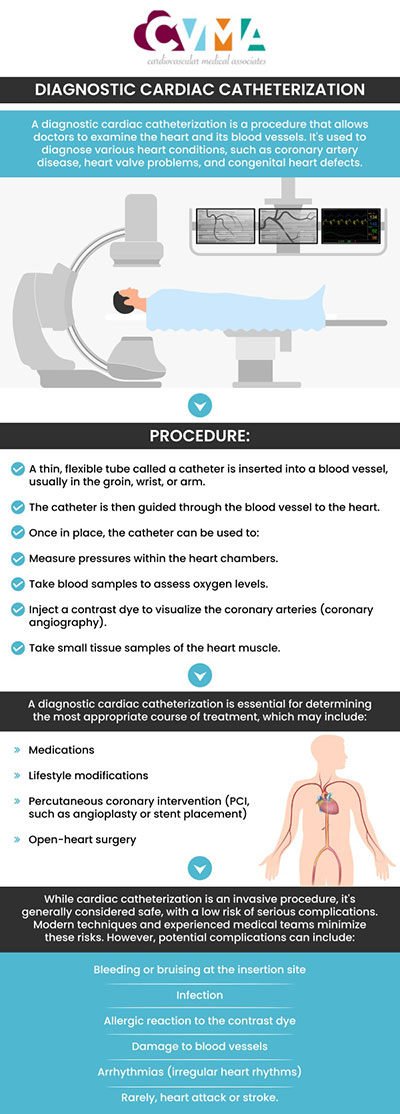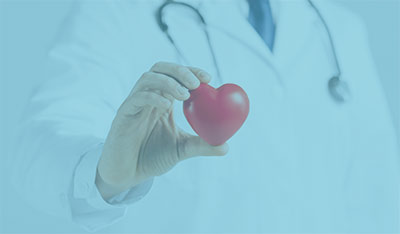Diagnostic Cardiac Catheterization at Cardiovascular Medical Associates in Downey, CA
Dr. Kaushal Tamboli at Cardiovascular Medical Associates offers diagnostic cardiac catheterization, a procedure used to evaluate the heart’s function and diagnose coronary artery disease. This minimally invasive test allows Dr. Tamboli to view the heart’s blood vessels and chambers, providing valuable insights for developing an effective treatment plan. For more information, contact us or book an appointment online. We are conveniently located at 8317 Davis St, Downey, CA 90241


Table of Contents:
How long does a diagnostic catheterization take?
What is done during cardiac catheterization?
Is cardiac catheterization a major surgery?
What not to do after a heart catheterization?
At Cardiovascular Medical Associates, we offer advanced diagnostic catheterization procedures, also known as coronary angiograms or cardiac catheterizations, to accurately assess the condition of your heart and blood vessels. Typically, a diagnostic catheterization at our San Diego practice takes between 30 minutes to an hour to complete, though the exact duration can vary depending on your individual needs and the complexity of your cardiovascular system.
During your procedure, one of our experienced interventional cardiologists will gently insert a thin, flexible tube called a catheter into a blood vessel, usually in the groin or wrist, and guide it to your heart. A special contrast dye is then injected to allow clear visualization of your coronary arteries and heart chambers using advanced X-ray imaging technology available at our facility.
While the procedure itself is relatively quick, you should plan to spend additional time at Cardiovascular Medical Associates for pre-procedure preparation and post-procedure monitoring, ensuring your comfort and safety every step of the way. Most patients can expect their total visit to last several hours.
Our dedicated team is committed to providing compassionate, expert care throughout your diagnostic journey. If you have questions about diagnostic catheterization or wish to schedule a consultation at Cardiovascular Medical Associates, please contact us today.
Cardiac catheterization involves gently inserting a thin, flexible tube—called a catheter—into a blood vessel, typically in the wrist or groin. Guided by real-time imaging technology, our specialists navigate the catheter to your heart. Local anesthesia is used to numb the insertion site, and you’ll remain comfortable and awake throughout the procedure, with medication available to help you relax if needed.
Once the catheter is in position, our team may inject a special contrast dye that makes your heart and blood vessels visible on X-ray images. This allows us to carefully assess blood flow, detect blockages, and identify abnormalities in your heart’s structure. We can also measure pressure and oxygen levels in different parts of your heart to gain a complete picture of your cardiovascular health.
At Cardiovascular Medical Group, cardiac catheterization is not only a powerful diagnostic tool but also allows us to treat certain conditions during the same procedure. If we find a blocked artery, we can perform an angioplasty to restore blood flow or place a stent to keep the artery open. Our interventional cardiologists can also repair specific heart defects or obtain tissue samples when necessary, all using the catheter-based approach.
We specialize in providing advanced, minimally invasive diagnostic and therapeutic procedures such as cardiac catheterization. This procedure is not considered a major surgery. Instead, it offers a safer and less invasive way to assess and treat certain heart conditions.
During a cardiac catheterization, our experienced cardiologists insert a thin, flexible tube called a catheter through a blood vessel—usually in your groin, wrist, or arm—and carefully guide it to your heart. The procedure is performed in our state-of-the-art cardiac catheterization lab, using local anesthesia with light sedation. This ensures you are comfortable, relaxed, and pain-free at the insertion site, while remaining awake.
This procedure allows our team to thoroughly evaluate your heart’s function, identify blockages or narrowing of the coronary arteries, assess heart valve performance, and measure pressures within the heart chambers. If a blockage is detected, our physicians can often perform treatments such as angioplasty or stent placement during the same session, restoring blood flow efficiently and safely.
Unlike traditional open-heart surgery, cardiac catheterization does not require large incisions or general anesthesia, and recovery time is much shorter. Most patients at Cardiovascular Medical Associates are able to return home the same day or after a brief observation period.
At Cardiovascular Medical Associates, your health and recovery are our top priorities. If you have recently undergone a heart catheterization at our practice, following these important guidelines will help ensure a safe and smooth healing process:
Activity Restrictions After Your Procedure: it’s essential to allow your body time to heal. Our cardiology team recommends avoiding strenuous activities—including heavy lifting, vigorous exercise, or intense physical work—for several days, or as specifically advised by your Cardiovascular Medical Associates provider. Additionally, please refrain from driving for at least 24 hours after your procedure, especially if you received sedation or anesthesia.
Caring for the Catheter Insertion Site: To prevent infection and promote healing, keep the catheter insertion site clean and dry. Avoid soaking the area in water, so hold off on baths, swimming, or using hot tubs until your doctor lets you know it’s safe. Showers are generally allowed; simply pat the area dry gently and avoid rubbing. Please do not scratch, pick at, or apply creams or powders to the site.
Our experienced physicians and staff are here to answer any questions and support you every step of the way. Always follow the personalized instructions provided by your Cardiovascular Medical Associates care team for the best possible recovery. For more information, contact us or book an appointment online. We are conveniently located at 8317 Davis St, Downey, CA 90241. We also serve patients from Norwalk CA, Lynwood CA, Lakewood CA, Cerritos CA, Whittier CA, and surrounding areas.








